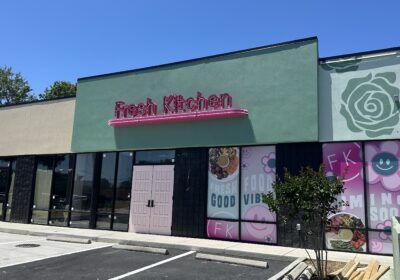New LLC to support students with queer identities

Newest LLC, Stonewall Suites, will open its doors this fall. The LGTBQ focused LLC will include 40 beds and also be open to allies. SPECIAL TO THE ORACLE
USF will welcome its newest Living Learning Community (LLC) this fall. While many are excited about the possibilities it offers, some are concerned with its affordability to its intended residents.
Stonewall Suites, the university’s first LGBTQ+ LLC is currently accepting applications and is set to open its doors to residents fall 2018. There will be approximately 40 beds up for grabs.
Housing and Residential Education defines an LLC as a residential community in which an academic major or special interest is emphasized.
Neudy Nuñez, the program director for academic initiatives and Living Learning Communities, said the goal of the many departments that spearheaded the creation of this LLC was all about inclusivity.
“The LLC was developed to provide USF students an opportunity to live and learn in an inclusive community where LGBTQ+ and allied students can find and create an environment of awareness, respect and advocacy for all sexual orientations and gender identities,” Nuñez said. “The LLC is a partnership between the Office of Multicultural Affairs and Residential Education with academic and student learning support from the Department of Women’s and Gender Studies.”
Maria Merrill, the coordinator for LGBTQ+ initiatives at the Office of Multicultural Affairs (OMA), said this LLC was a result of high demand.
“Our office serves as the vessel of the student voice,” Merrill said. “It was really the students that started this in 2014.”
Prin Luis, a student assistant OMA, is one of those students. They said that they worked to collect data and called similar LLCs at other universities to create a mock proposal for this initiative in 2014.
“Living in the traditional housing on campus, LGBTQ+ students often face discrimination or harassment from roommates,” Luis said. “I experienced a similar situation when I was living on campus, and I just wanted to create an environment that can uplift fellow LGBTQ+ students. So, that’s my vision with the LLC.”
Stonewall Suites is not only open to LGBTQ+ students, but also students that consider themselves to be allies.
This can raise some concerns as to how applicants of Stonewall Suites are properly screened to ensure a non-discriminatory environment for all.
Stacy Pippen, director of OMA, said applicants will be vetted through questions included in the application.
“Just like any other LLC, there are some consistencies with the application process,” Pippen said. “So, each applicant will apply for the LLC and will answer also a series of questions. They’ll be screened based on the answers they provide to those questions to ensure the safety and well-being of all residents within the LLC.”
Many students echo the sentiment that the addition of Stonewall Suites is a great thing due to the alternatives it offers to traditional housing.
“Housing, especially dorm-style housing, is something I was super uncomfortable with and I think a lot of other queer people are too,” Trans+ Student Union board member, Jordan Bonyata said. “It’s a good thing that people will have it.”
Julia McClure, the vice president of P.R.I.D.E Alliance, also uses one word that should be synonymous with housing: comfortable.
“I feel like it would be a place they would feel comfortable in,” McClure said. “They could meet people from all walks of life. It promotes diversity and acceptance.”
Along with this general feeling of positivity, there comes some concerns about accessibility.
Stonewall Suites will be housed on the sixth floor of Beacon Hall located within the Village. According to the updated hall rates for fall 2018 and spring 2019 semesters, a suite-style double bedroom in this residence hall is $1,094.50 a month.
“It’s going to be in one of the most expensive dorms,” Bonyata said. “Gay people actually make less money, and a lot of people may have issues paying for that. I know people whose parents have disowned them, and they’re taking out loans to pay for stuff themselves, and they wouldn’t want to live in the most expensive housing. It impacts accessibility.”
Andrew Maish, a junior majoring in business management, said he is also concerned about the affordability.
“I think the idea is great, but it’s kind of concerning that the living arrangements are some of the most expensive on campus,” Maish said. “That may marginalize an already marginalized group.”
As inclusivity becomes inextricably woven into the college experience, initiatives like this will become more common. Universities and students will learn to accommodate and tolerate in more effective ways.
“There will inevitably be protests, but in the long run, I imagine people will live and let live,” Maish said.






